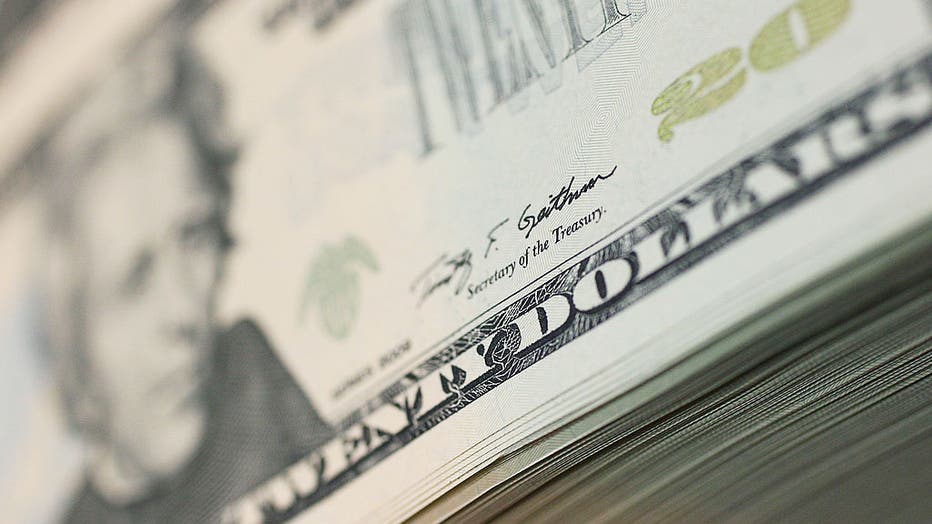Stimulus checks and your 2020 taxes: All of your questions, answered
WASHINGTON - The federal government has delivered two stimulus checks to tens of millions of Americans as part of an effort to blunt the economic pain triggered by the coronavirus pandemic, but many are wondering how the payments could affect your 2020 taxes as filing season approaches.
Taxes played a major role in how the government distributed the money: The first check, worth as much as $1,200, was based on either your 2018 or 2019 tax return, while the second check, worth up to $600, was based on your 2019 return.
RELATED: Biden signs 10 executive orders on pandemic, warns things will ‘get worse before they get better’
But in some instances, Americans either didn't receive the stimulus check, or didn't receive the full amount they were entitled to, given instances like job losses or the birth of a child.
Here's everything you need to know about your taxes and the stimulus checks:
Do I owe taxes on the stimulus money?
No, because the IRS does not consider the stimulus checks to be income.
"The payment will not reduce a taxpayer's refund or increase the amount they owe when they file their 2020 or 2021 tax return next year," the agency said. "A payment also will not affect income for purposes of determining eligibility for federal government assistance or benefit programs."
I think I received the wrong amount of money. What should I do?
Eligibility for the first $1,200 payment was based on your 2018 or 2019 tax return, while the second $600 check was based on your 2019 income tax return.
If you received the incorrect amount of money, you can still receive the full payment: To do so, you need to file a 2020 tax return and claim a Recovery Rebate Credit.
The IRS on Friday opened up Free File, free online tax preparation software, for taxpayers who earn less than $72,000 to prepare and file their income tax returns. Americans can also claim their stimulus check using the tool.
The IRS will begin accepting returns on Feb. 12 — typically the agency opens tax season at the end of January — because it needs more time to ensure its systems can handle the credits that apply to the second stimulus payments.
RELATED: Biden signs executive orders on COVID-19, immigration, rejoining Paris climate accord and WHO
"For 2021, eligible taxpayers who did not receive the full amount can claim it as the Recovery Rebate Credit when they file their 2020 tax return," the IRS said. "Use IRS Free File to file and claim this important benefit."
I didn't receive my stimulus check. What should I do?
The IRS had until Jan. 15 to distribute the second $600 stimulus payment. If you don't receive the cash payment, then you can claim a Recovery Rebate Credit on your 2020 tax return.
Some Americans aren't eligible to receive the cash payment: College students and dependents over the age of 17 won't receive the money, nor will immigrants who don't have a Social Security number. Some higher earners who received a check during the first round of stimulus payments will also not qualify for the second round.

Newly printed twenty dollar bills photographed at the Bureau of Engraving and Printing.
You can use the IRS' Get My Payment tool to check the status of your stimulus check.
My income changed since I filed my taxes last year. Am I eligible for stimulus money?
Single people earning less than $75,000 and couples making less than $150,000 combined were eligible to receive both full stimulus payments. But millions of Americans lost their jobs, or saw their income reduced, this year as a result of the pandemic -- meaning that many individuals who didn't initially receive the money based on their 2018 or 2019 tax returns may now qualify.
If you think the IRS owes you stimulus money, you can use a recovery rebate worksheet to calculate how much you should receive and claim that amount on Line 30 on your 2020 tax return. The IRS will include your stimulus payments as part of your refund check.
When can I expect to receive my tax refund?
The IRS urged Americans to file their taxes electronically this year as the agency deals with a backlog of nearly 7 million unprocessed paper returns from last year.
"If filing season were opened without the correct programming in place, then there could be a delay in issuing refunds to taxpayers," the IRS said in a news release.
The agency said it expects nine out of 10 taxpayers to receive their refund within 21 days of filing electronically.
Get updates on this story at FOXBusiness.com.

